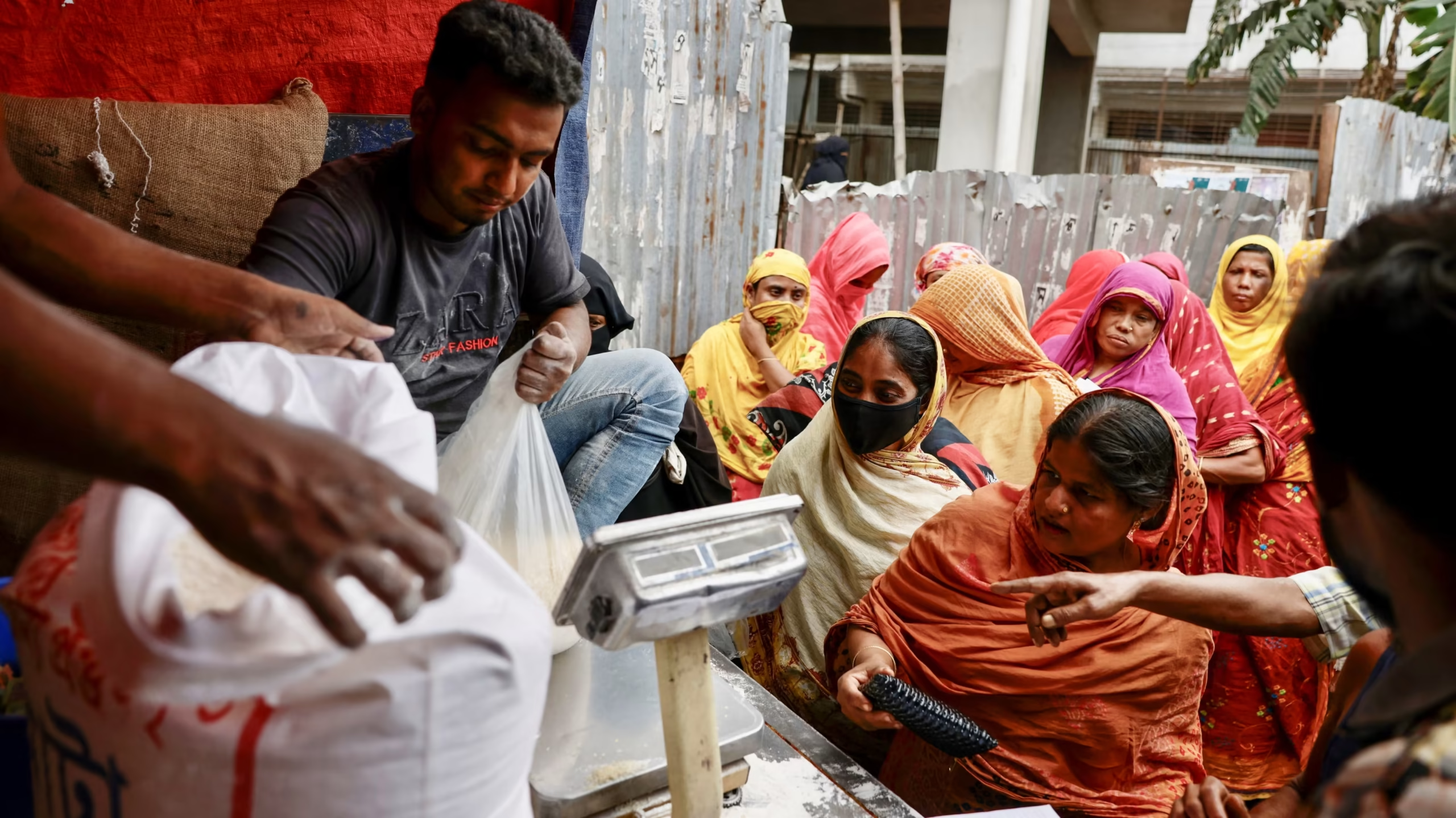“Climate change is creating significant challenges for mental health globally, with Bangladesh standing out as one of the most vulnerable nations to this compounded crisis.”
Ranked among the most climate-vulnerable countries globally, Bangladesh frequently experiences severe flooding, cyclones, and rising sea levels. Rising temperatures, increased humidity, and frequent flooding directly and indirectly influence psychological well-being, contributing to higher rates of depression, anxiety, and related disorders. These environmental stressors are compounded by Bangladesh’s socioeconomic vulnerabilities, including poverty, rapid urbanization, and under-resourced health systems, which make it harder for affected populations to access the support they need.
In particular, urban areas such as Dhaka and Chattogram are further stressed by the urban heat island effect, while rural and coastal communities face persistent threats of displacement, agricultural loss, and resource scarcity. These challenges highlight the importance of understanding and addressing the ways in which climate stressors affect mental health outcomes.
Despite growing recognition of these issues, nationally representative data connecting climate factors to mental health outcomes have been limited, constraining the scope for evidence-based policymaking. A novel study, the first of its kind from Bangladesh, summarized here bridges this gap, providing a comprehensive analysis of how climate-related stressors exacerbate mental health risks in Bangladesh. Its findings emphasize the urgent need for targeted, climate-resilient mental health interventions and integrated policies to address this growing concern.
About the study
This study leveraged nationally representative data to analyze the connections between climate stressors and mental health outcomes, with a focus on depression, anxiety, and their co-occurrence. Surveying over 7,000 participants across urban and rural regions, researchers utilized validated tools such as the Patient Health Questionnaire-9 (PHQ-9) and the Generalized Anxiety Disorder-7 (GAD-7) to assess mental health conditions. Climate data, including temperature, humidity, and self-reported flood exposure, were integrated to explore their correlations with mental health.
The study aimed to address three primary objectives:
- Estimate the prevalence of depression and anxiety in Bangladesh,
- Evaluate how climate-related stressors influence these outcomes, and
- Identify the sociodemographic groups most at risk
This multi-dimensional approach provides a nuanced understanding of mental health vulnerabilities in the context of Bangladesh’s unique environmental and societal challenges. The findings offer critical insights to guide policymakers and practitioners in creating tailored interventions for at-risk populations.
Unveiling the Numbers: Major Findings
The findings revealed significant insights into the mental health landscape in Bangladesh, particularly as it relates to climate stressors:
Prevalence of Mental Health Disorders
- Depression: Affects 16.3% of the population, a significant increase compared to previous estimates.
- Anxiety: Impacts 6% of individuals, consistent with global trends.
- Co-occurrence of both anxiety and depression: 4.8% of the population experiences both depression and anxiety, indicating the need for integrated care approaches.
Climate-Related Drivers
- Temperature: A one-degree Celsius rise in average temperature is associated with:
- A 21% increase in the odds of anxiety.
- A 24% increase in the odds of co-occurring depression and anxiety.
- Flood Exposure: Experiencing flooding within the previous year increases the likelihood of:
- Depression by 31%.
- Anxiety by 69%.
- Co-occurrence of depression and anxiety by 87%.
- Humidity: Elevated humidity is weakly associated with an increased risk of comorbid conditions but not with individual disorders.
Demographic and Geographic Disparities
- Urban Residents: Those in Dhaka and Chattogram face heightened risks due to urban heat islands and socioeconomic stressors, particularly within informal settlements where access to health services is limited.
- Women: More likely to experience depression compared to men, reflecting global trends that show heightened mental health vulnerability among women, often due to structural inequalities.
- Older Adults: Show greater vulnerability to both depression and anxiety, with the risks increasing significantly in those aged 66 years or older.
- Economic Shocks: Households experiencing economic instability exhibit significantly higher odds of all mental health outcomes, highlighting the compounding effect of financial and environmental stressors.
These findings underscore the compounded risks posed by climate change, socioeconomic vulnerabilities, and demographic factors. They also suggest the importance of considering both individual and structural factors when designing mental health interventions for Bangladesh.
Key priorities in terms of policy and practice: Build Climate-Resilient Mental Health Systems
The findings underscore climate change as a significant multiplier of mental health risks, especially in Bangladesh, where socio-economic vulnerabilities amplify these challenges. Addressing the complex interplay between climate stressors and mental health requires a proactive and integrated approach. Key recommendations include:
- Mental health as a pillar of climate resilience
- Recognize mental health as integral to climate adaptation strategies, moving beyond its traditional framing as a medical issue.
- Address climate-related stressors such as heat, flooding, and humidity that intensify existing socio-economic and health disparities.
- Targeted interventions for at-risk populations
- Prioritize support for vulnerable groups, including:
- Urban residents impacted by the urban heat island effect.
- Women, older adults, and economically disadvantaged households.
- Implement urban resilience measures such as:
- Green spaces and climate-conscious infrastructure to mitigate urban heat-related risks.
- Disaster management systems and community-based mental health programs for rural and coastal areas.
- Prioritize support for vulnerable groups, including:
- Scaling up community-based mental health services
- Expand access to care by adopting task-sharing models that train community health workers to screen for and manage common mental disorders.
- Integrate mental health support into disaster response protocols to address immediate and long-term needs.
- Ensure that education and awareness campaigns reach vulnerable populations, equipping them with tools to cope with climate-related stressors.
- Strengthening social protection systems
- Expand safety nets to cushion economic shocks, reducing mental health vulnerabilities, particularly among lower-income populations.
- Enhancing research and monitoring systems
- Develop robust systems to monitor trends and evaluate intervention effectiveness.
- Conduct longitudinal studies on the mental health impacts of climate variability to generate actionable insights.
- Foster partnerships between academic institutions, government agencies, and international organizations to support evidence-based policy innovations.
These measures collectively aim to build climate-resilient mental health systems that address both immediate needs and long-term challenges, ensuring that Bangladesh can adapt effectively to the intertwined crises of climate change and mental health.
In sum: Towards a Holistic Response
Bangladesh’s experience underscores the urgency of integrating mental health considerations into climate policy. This study demonstrates the significant burden of depression and anxiety linked to climate-related stressors and identifies key areas for intervention. As climate change intensifies, proactive measures are needed to mitigate its impact on mental health, particularly among the nation’s most vulnerable populations.
By prioritizing mental health within broader climate resilience strategies, Bangladesh can not only address current challenges but also build a foundation for a healthier and more equitable future. The path forward demands collaboration across sectors, sustained investment in mental health infrastructure, and a commitment to addressing the intertwined crises of climate change and mental well-being.













